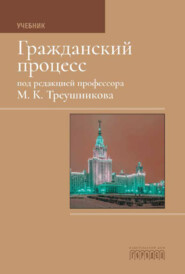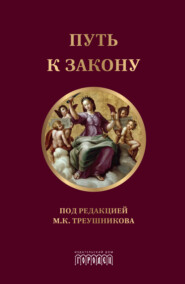По всем вопросам обращайтесь на: info@litportal.ru
(©) 2003-2024.
✖
The German Classics of the Nineteenth and Twentieth Centuries, Volume 04
Настройки чтения
Размер шрифта
Высота строк
Поля
Well, you may take the responsibility. (He plays on the bells and sings.)
These sacred halls of beauty
Revenge have never known.
For love guides back to duty
The man who vice has sown.
Then he is led by friendly hand,
Glad and content, to a better land.
[The pit begins to applaud; meanwhile the scene is changed, the fire and water taken from the MAGIC FLUTE begin to play, above appears the open temple of the sun, the sky is clear and Jupiter sits within it, beneath Hell with Terkaleon, cobalds and witches on the stage, many lights, etc. The audience applauds excessively, everything is astir.]
WIESENER
Now the cat has only to go through fire and water and then the play is finished.
[Enter the KING, the PRINCESS, GOTTLIEB, HINZE and servants.]
HINZE
This is the palace of the Count of Carabas. Why, the dickens, how this has changed!
KING
A beautiful palace!
HINZE
As long as matters have gone thus far (taking Gottlieb by the hand) you must first walk through the fire here and then through the water there.
GOTTLIEB (walks through fire and water to the sound of flute and drum.)
HINZE
You have stood the test; now, my prince, you are altogether worthy of the government.
GOTTLIEB
Governing, Hinze, is a curious matter.
KING
Accept, now, the hand of my daughter.
PRINCESS
How happy I am!
GOTTLIEB
I, likewise. But, my king, I would desire to reward my servant.
KING
By all means; I herewith raise him to the nobility. (He hangs an order about the cat's neck.) What is his actual name?
GOTTLIEB
Hinze. By birth he is of but a lowly family—but his merits exalt him.
LEANDER (quickly stepping forward).
After the King I rode with due submission,
And now implore his Majesty's permission
To close with laudatory lines poetic
This play so very wondrous and prophetic.
In praise of cats my grateful anthem soars—
The noblest of those creatures on all fours
Who daily bring contentment to our doors.
In Egypt cats were gods, and very nice is
The Tom-cat who was cousin to Great Isis.
They still protect our cellar, attic, kitchen,
And serve the man who this world's goods is rich in.
Our homes had household gods of yore to grace them.
If cats be gods, then with the Lares place them!
[Drumming. The curtain falls.]
FAIR ECKBERT (1796)
BY LUDWIG TIECK
TRANSLATED BY PAUL B. THOMAS
In a region of the Hartz Mountains there lived a knight whom people generally called simply Fair Eckbert. He was about forty years old, scarcely of medium height, and short, very fair hair fell thick and straight over his pale, sunken face. He lived very quietly unto himself, and was never implicated in the feuds of his neighbors; people saw him but rarely outside the encircling wall of his little castle. His wife loved solitude quite as much as he, and both seemed to love each other from the heart; only they were wont to complain because Heaven seemed unwilling to bless their marriage with children.
Very seldom was Eckbert visited by guests, and even when he was, almost no change on their account was made in the ordinary routine of his life. Frugality dwelt there, and Economy herself seemed to regulate everything. Eckbert was then cheerful and gay—only when he was alone one noticed in him a certain reserve, a quiet distant melancholy.
Nobody came so often to the castle as did Philip Walther, a man to whom Eckbert had become greatly attached, because he found in him very much his own way of thinking. His home was really in Franconia, but he often spent more than half a year at a time in the vicinity of Eckbert's castle, where he busied himself gathering herbs and stones and arranging them in order. He had a small income, and was therefore dependent upon no one. Eckbert often accompanied him on his lonely rambles, and thus a closer friendship developed between the two men with each succeeding year.
There are hours in which it worries a man to keep from a friend a secret, which hitherto he has often taken great pains to conceal. The soul then feels an irresistible impulse to impart itself completely, and reveal its innermost self to the friend, in order to make him so much the more a friend. At these moments delicate souls disclose themselves to each other, and it doubtless sometimes happens that the one shrinks back in fright from its acquaintance with the other.
One foggy evening in early autumn Eckbert was sitting with his friend and his wife, Bertha, around the hearth-fire. The flames threw a bright glow out into the room and played on the ceiling above. The night looked in darkly through the windows, and the trees outside were shivering in the damp cold. Walther was lamenting that he had so far to go to get back home, and Eckbert proposed that he remain there and spend half the night in familiar talk, and then sleep until morning in one of the rooms of the castle. Walther accepted the proposal, whereupon wine and supper were brought in, the fire was replenished with wood, and the conversation of the two friends became more cheery and confidential.
After the dishes had been cleared off, and the servants had gone out, Eckbert took Walther's hand and said:
"Friend, you ought once to let my wife tell you the story of her youth, which is indeed strange enough."
"Gladly," replied Walther, and they all sat down again around the hearth. It was now exactly midnight, and the moon shone intermittently through the passing clouds.

















